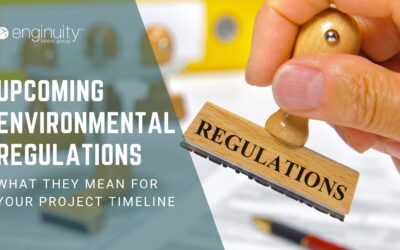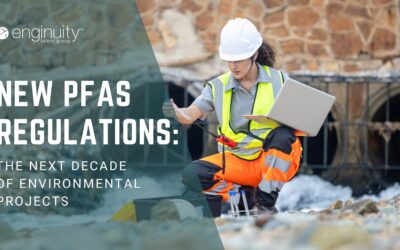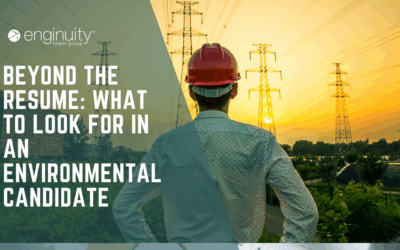As infrastructure demands rise, climate challenges intensify, and sustainable development becomes more urgent, the expectations placed on civil and environmental engineers are rapidly evolving. In 2025, employers aren’t just looking for technical proficiency, they’re seeking agile problem solvers who can navigate a fast-changing landscape with innovation, cross-disciplinary knowledge, and strong communication skills. Whether designing resilient transportation systems, managing green infrastructure, or mitigating environmental risks, today’s engineers must operate at the intersection of data, sustainability, and collaboration. This article explores the top skills employers will prioritize in 2025 and offers insights into how civil and environmental engineers can position themselves for success in a market that values both technical depth and holistic thinking.
Systems Thinking and Interdisciplinary Knowledge
Engineering challenges in 2025 rarely exist in isolation. Civil and environmental engineers must now understand how interconnected systems, like transportation, water, energy, and ecosystems, interact with one another. Employers increasingly value professionals who can take a systems thinking approach, recognizing long-term impacts and cascading effects across sectors.
Engineers who can consider the social, economic, and environmental dimensions of a project are well-positioned to lead integrated design solutions. For instance, understanding how stormwater infrastructure affects urban heat islands or how transportation projects impact air quality reflects a comprehensive mindset that employers reward.
Projects like the Thames Tideway Tunnel in London or New York City’s cloudburst management plans highlight the importance of systems-level coordination. These initiatives combine infrastructure resilience, environmental safeguards, and public health to create long-term value. Being able to see these connections and lead collaborative problem-solving efforts is now a hallmark of engineering excellence.
Digital Literacy and Engineering Technology Proficiency
Digital transformation is reshaping the engineering landscape. Employers in 2025 are seeking engineers who are proficient with modeling software, data visualization tools, and digital project delivery platforms. Familiarity with software such as AutoCAD Civil 3D, Revit, HEC-RAS, GIS platforms, and Building Information Modeling (BIM) is no longer optional, it’s expected.
Beyond traditional tools, new expectations are emerging. Engineers must engage with simulation software, perform environmental impact modeling, and analyze big datasets related to environmental monitoring or construction performance. Proficiency with Python, R, or MATLAB can add value for engineers working in analytics-heavy environments.
Digital literacy also includes understanding cybersecurity principles, cloud collaboration tools like Autodesk Construction Cloud, and digital twin technologies that replicate infrastructure systems in real time. Case studies from firms using digital twins in water treatment and smart highway systems show how this technology improves real-time decision-making and predictive maintenance.
Regulatory and Policy Fluency
Environmental engineers, in particular, operate within a highly regulated framework. Civil engineers involved in public works or transportation also must adhere to evolving building codes, environmental legislation, and safety protocols. Employers increasingly favor candidates who understand permitting processes, environmental impact assessment protocols, and sustainability certification systems.
In 2025, engineers are expected to be fluent in standards such as the Clean Water Act, National Environmental Policy Act (NEPA), and local infrastructure funding regulations. Engineers who can engage with policy, not just comply with it, add strategic value to any team.
For example, knowledge of California’s SB 743 regulations or FEMA floodplain mapping revisions equips engineers to guide project planning in ways that prevent delays and reduce liability. Policy fluency ensures engineers contribute beyond the drafting table and into the boardroom.
Data Analysis and Environmental Monitoring
In both civil and environmental contexts, data drives decisions. Engineers must be comfortable collecting, analyzing, and interpreting large datasets from sensors, satellite imagery, hydrologic models, or environmental sensors. Employers want professionals who can turn complex information into actionable insights.
For example, monitoring air and water quality using IoT-based platforms allows engineers to anticipate risks and advise on mitigation. In construction, structural health monitoring data helps ensure project safety and long-term performance.
Engineers in 2025 are expected to leverage real-time dashboards and predictive analytics. Tools like ArcGIS Insights and Microsoft Power BI are being used to model flood risks, map pollutant dispersion, and simulate project outcomes under different climate scenarios. Engineers who bring these insights to the table help organizations act faster and more strategically.
Communication and Stakeholder Engagement
Gone are the days when engineers could operate purely behind the scenes. Employers now expect professionals to explain their technical findings to stakeholders, clients, regulatory agencies, and even community groups. Clear communication, written, visual, and verbal, is essential.
This includes the ability to draft environmental impact reports, present project plans to municipal boards, and collaborate with public affairs teams. Engineers who can build consensus and navigate diverse stakeholder interests are crucial for successful project delivery.
Notable examples include community-based infrastructure planning in the Netherlands, where engineers lead participatory workshops to align stormwater solutions with public values. Visualization tools, infographics, and story maps have become integral to helping clients understand complex systems.
Project Management and Scheduling Proficiency
As infrastructure projects grow in complexity and scale, employers highly value engineers who can manage timelines, budgets, resources, and risk. Project management is no longer a soft skill; it’s a core competency.
Familiarity with scheduling software like Primavera P6, Microsoft Project, and risk assessment tools is a must. Engineers are often expected to support or lead project management efforts, particularly in multi-disciplinary teams and joint ventures.
Public-private partnerships (PPPs), like those driving smart mobility corridors and climate-resilient ports, often require engineers to manage across jurisdictions, languages, and funding streams. In these scenarios, engineers who understand not only the technical aspects but also the coordination challenges are essential.
Climate Resilience and Sustainability Expertise
Sustainability is no longer a bonus, it’s a baseline requirement. Employers look for civil and environmental engineers who understand low-impact development (LID), green infrastructure, life-cycle analysis, and carbon mitigation techniques.
Climate resilience also plays a central role. Engineers who can assess flood risk, design for temperature extremes, and implement adaptive infrastructure solutions will lead projects that stand the test of time. Familiarity with frameworks such as Envision and LEED is becoming standard.
Software tools such as SITES and Athena Impact Estimator are helping engineers quantify environmental benefits. Success stories from the rebuilding of Louisiana’s wetlands and the design of Singapore’s green roofs demonstrate the technical and economic advantages of sustainable planning.
Construction Knowledge and Field Experience
Designs must function in the real world. Employers continue to value hands-on experience in construction, field inspections, and construction administration. Engineers who understand how designs are implemented and what can go wrong are more effective collaborators and problem solvers.
This knowledge also supports better cost estimation, scheduling, and safety planning. Whether it’s managing subgrade soils, coordinating with contractors, or resolving on-site engineering questions, field-experienced engineers are more adaptable and respected.
Digital inspection tools such as Trimble SiteVision and drone-based surveying are increasingly part of the field engineer’s toolkit. Engineers who embrace these technologies are better positioned to bridge the gap between office and site.
Innovation and Creative Problem Solving
Today’s engineering challenges are more complex than ever. Employers are looking for professionals who can innovate, not just follow instructions. Creative problem solvers who explore new materials, construction techniques, or engineering strategies offer long-term value.
Frameworks like design thinking and agile project management are increasingly used in engineering firms to foster innovation. Piloting sustainable concrete blends, modular construction systems, or permeable pavements are real-world examples of engineers pushing boundaries.
These skills lead to not only better technical results but also cost savings and client satisfaction. Organizations that foster innovation value engineers who question assumptions, test new ideas, and apply lessons learned across projects.
Ethics, Equity, and Social Responsibility
Engineering decisions have societal impacts. Employers are increasingly focused on hiring engineers who consider ethics, community engagement, and equity in their designs. Environmental justice, public health, and fair access to infrastructure are top concerns.
In 2025, engineers will be expected to evaluate how their projects affect underserved communities and whether their solutions address systemic inequities. Civil and environmental engineers play a central role in creating inclusive, safe, and beneficial spaces for all users.
The Flint water crisis and Miami’s heat resilience plans are stark reminders of the consequences and potential of ethical engineering. Engineers who take ethics seriously—through transparent communication, rigorous analysis, and stakeholder engagement—build trust with clients and communities alike.
Lifelong Learning and Professional Development
With the pace of change in tools, codes, and climate science, continual learning is non-negotiable. Employers favor engineers who demonstrate curiosity, humility, and a commitment to skill development.
Whether it’s attending workshops on new green building codes, learning a new modeling platform, or pursuing professional certifications, staying current sets successful engineers apart. Engineers who join professional organizations (like ASCE or AAEES) and pursue advanced degrees or credentials are more likely to move into leadership positions.
The rise of micro-credentials, online bootcamps, and hybrid degrees reflects the demand for agile skill acquisition. Engineers who show initiative in self-improvement often rise quickly and become mentors themselves.
Risk Assessment and Resilience Planning
A growing skill set employers are looking for in 2025 is risk assessment. Whether related to geohazards, infrastructure failure, or climate events, civil and environmental engineers who specialize in identifying, quantifying, and mitigating risks bring enormous value to projects.
Tools such as HAZUS for disaster simulation and FEMA’s Risk MAP platform are frequently used to support this work. Engineers who can integrate these tools with design recommendations help municipalities and private developers prepare for uncertainty.
These professionals are often involved early in planning and post-disaster recovery phases, shaping the future of resilient infrastructure systems.
Business Acumen and Strategic Thinking
As engineers take on leadership roles, understanding the business side of engineering becomes essential. Employers appreciate professionals who grasp budgeting, return on investment (ROI), and strategic planning.
Whether it’s evaluating the financial trade-offs of a green upgrade or aligning engineering solutions with stakeholder values, engineers with business fluency become invaluable assets.
Pursuing MBAs or coursework in project finance, marketing, or entrepreneurship can enhance career flexibility and prepare engineers for firm leadership, consulting, or entrepreneurial ventures.
Building a Future-Ready Engineering Career
In 2025, civil and environmental engineers will need more than technical expertise to succeed. They’ll need to think strategically, communicate clearly, and design for a world that’s changing rapidly. From climate adaptation to digital collaboration, the most valued professionals will be those who embrace complexity with a systems mindset and a strong ethical foundation.
Whether you’re entering the field or seeking to future-proof your career, cultivating these skills will position you not only for job security but for meaningful impact. The engineers shaping tomorrow’s world are already building these strengths today.






0 Comments